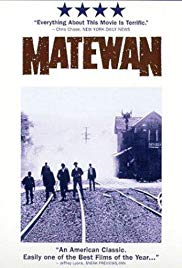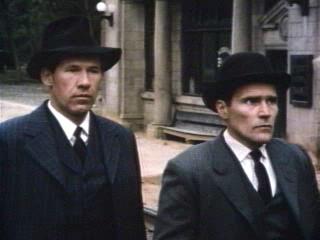Before the coal fields were unionized, the coal companies used many devices to oppress the miners. The companies owned the only stores in the town and required miners to buy food, clothing and tools at inflated prices. They owned all the housing, and would evict “trouble makers.” They employed thugs to beat and kill workers they didn’t like. Laws restricting child labor and mine safety were usually not obeyed.
The coal company operators dominated West Virginia politics, controlling both the Republican and the Democratic parties. Often, elected officials were executives of the mine companies and paid directly by the companies. Given the pervasiveness of the corruption in West Virginia in the early 20th century, it was unusual for a local police chief and a mayor to side with the miners.
Matewan was only one battle in the Great Coal Field War in which the mining companies sent thousands of armed guards and strikebreakers (scabs) to West Virginia. Company thugs killed coal miners and their supporters. The Matewan Police Chief, Sid Hatfield, was shot on the Court House steps by company operatives after he was indicted for his role in the Matewan Massacre. The coal miners, for their part, blew up mines and other coal company property. 10,000 miners fought a pitched battle with company forces at Logan, West Virginia, in 1921, gaining the upper hand. President Warren G. Harding then declared martial law in West Virginia, sent in Federal troops and broke the strike. The United Mine Workers Union was not able to organize the coal fields until the early 1930s when President Roosevelt came to power.
West Virginia has a tradition of fundamentalist religion that is close to the people. In this movie, knowledge of the Bible allowed the young preacher to tell his friends that Kinehan, the union organizer, was being unjustly accused while the coal company goons heard the same sermon but, because they didn’t know the Bible, completely missed the message.
During each war fought by the United States there have been a few young men who went to jail rather than fight. Often these were religious dissenters like the people that Kinehan spoke about, including Quakers and Mennonites. Others have been political dissenters, as Kinehan was. The number of conscientious objectors from U.S. wars has always been small. In World War II, when 15 million Americans served in the armed forces, there were only 50,000 conscientious objectors. Even during the Vietnam War, as unpopular as it was, there were only 21,000 conscientious objectors out of 22 million selective service registrants.



